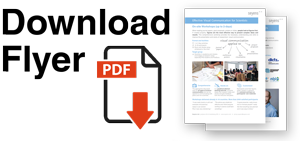Proven & Globally Trusted
Most loved training at many of 200+ excellent research institutions.
Already in 24 countries since 2013.
Work on Your Materials
Submit your publications in advance, get personalized feedback and visualize your own research messages.
Comprehensive
The skills are transferable and work for all types of science presentation and for communicating with diverse audiences.
95% 5-star reviews by participants on Trustpilot
⭐⭐⭐⭐⭐
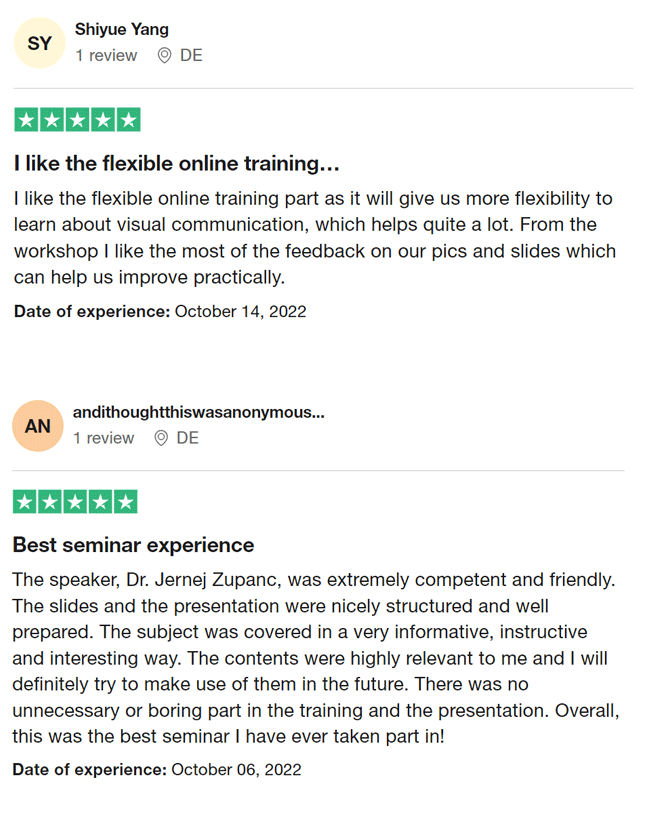
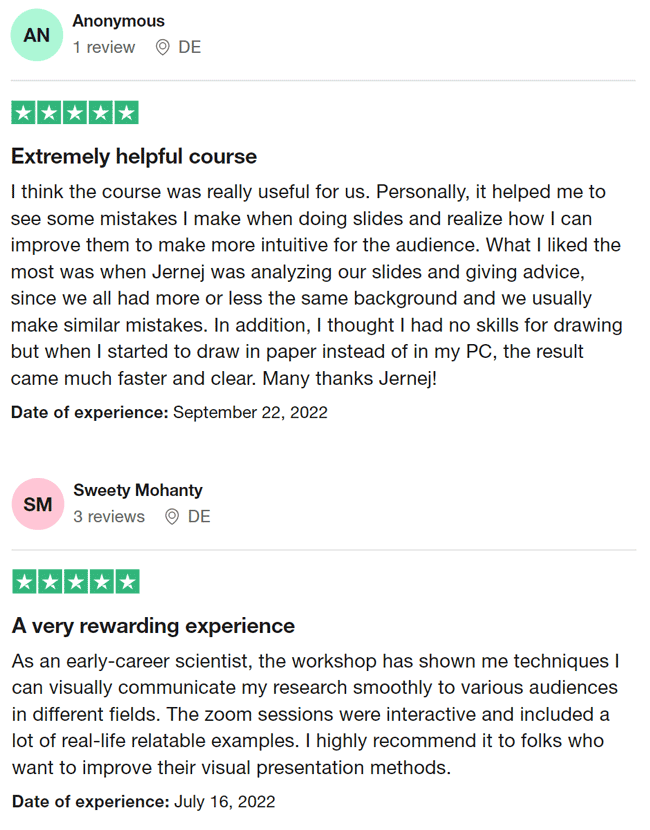
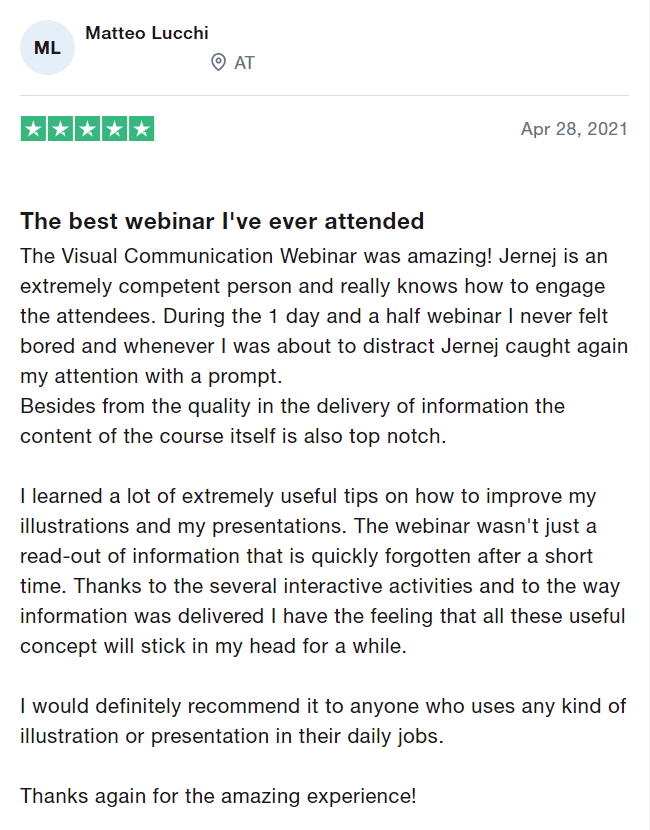
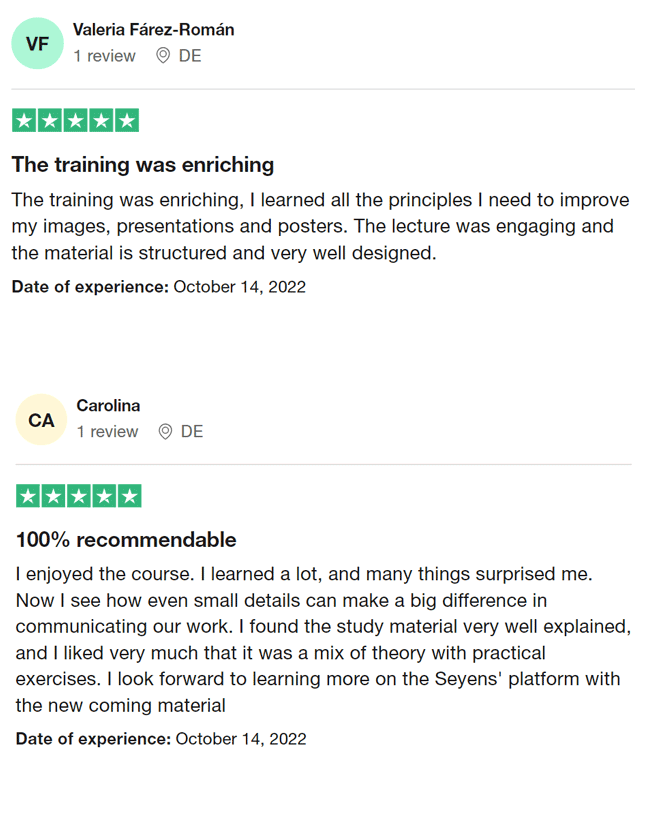
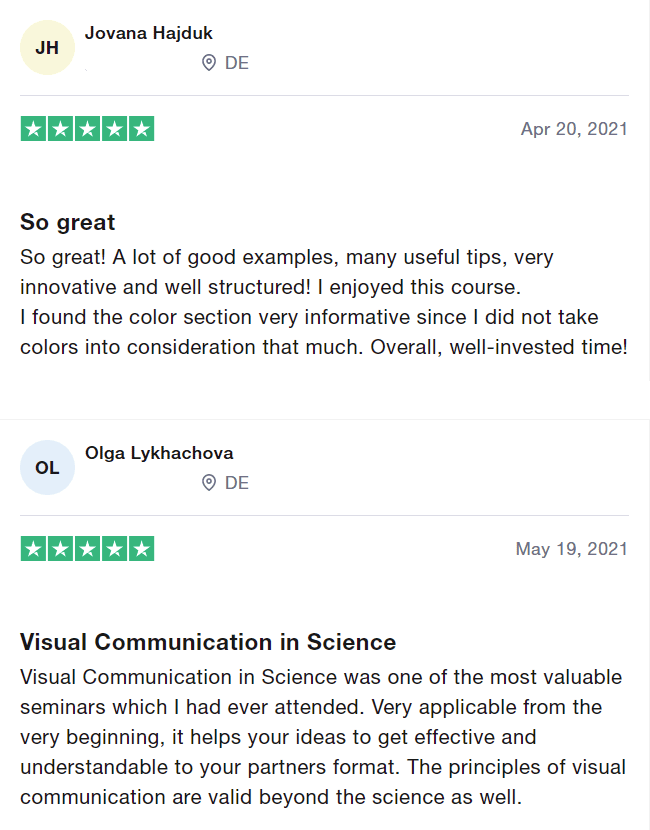
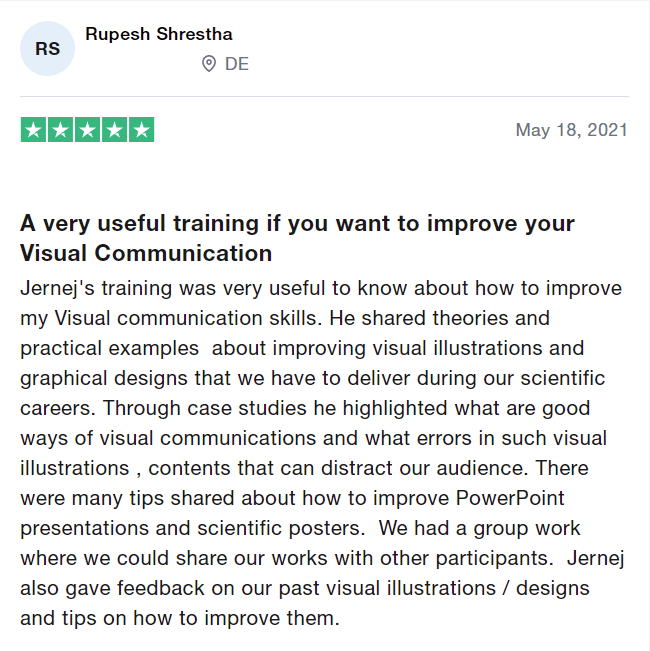
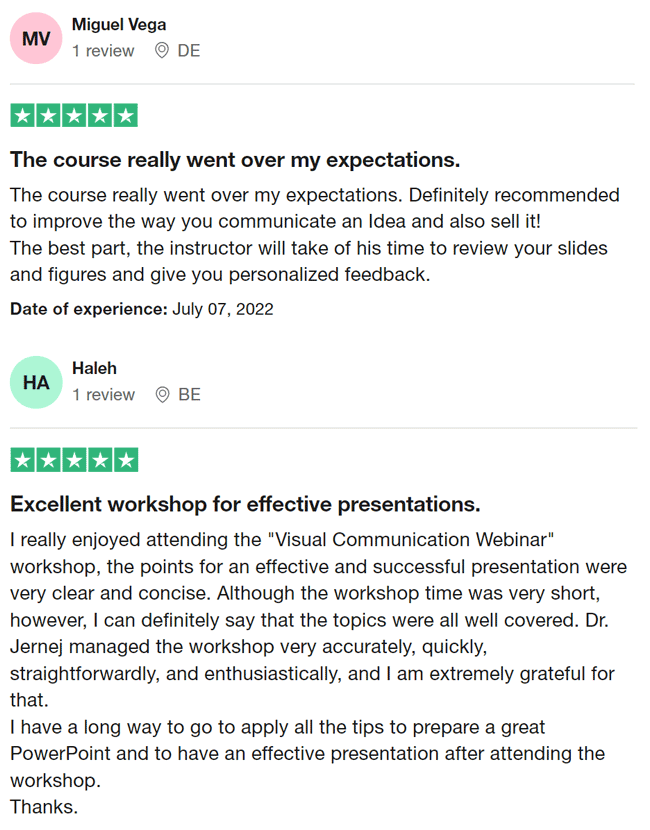
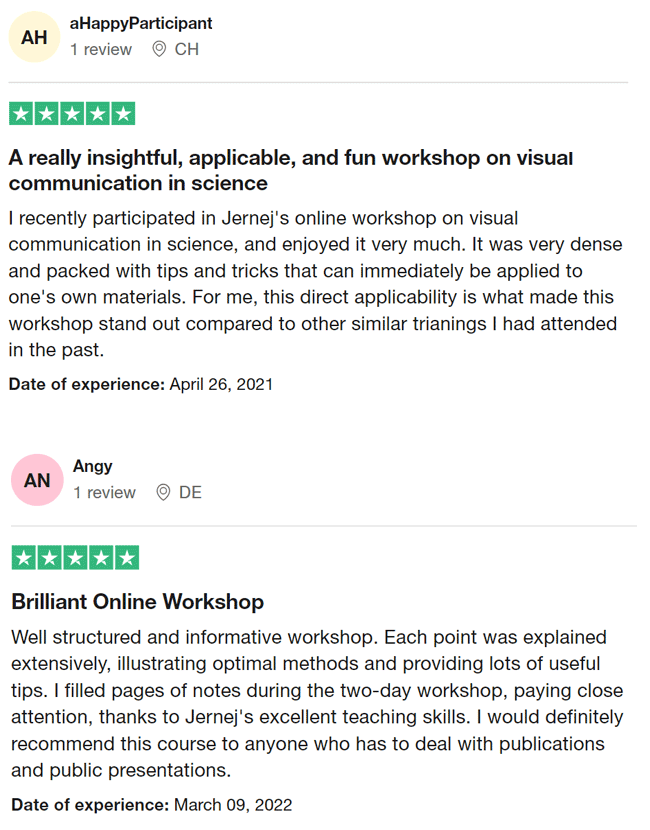
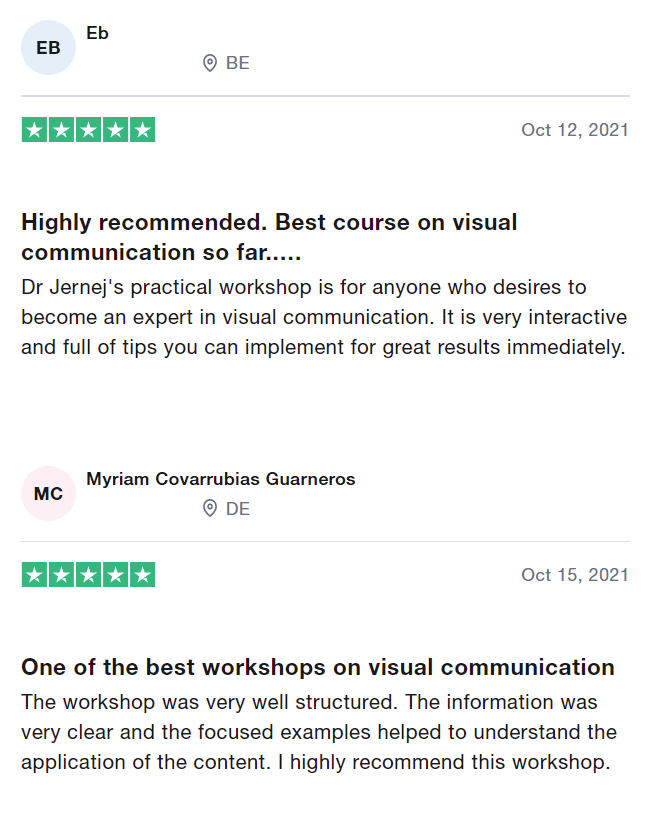
Transform Your Research Communication
My goal is to help you communicate more effectively with both scientists and non-scientists. We’ll focus on using human visual perception to create impactful scientific communication, prioritizing clarity and understanding over aesthetics.
This immersive training is comprehensive, structured, easy to follow, and enjoyable. It aims to fundamentally change how you approach communication in science and beyond.
- Boost Career Prospects: increase the likelihood of your papers being accepted by esteemed journals, secure sought-after Postdoc or tenured positions and improve your chances of funding for your groundbreaking ideas in fiercely competitive grant applications.
- Get Immediate Results: learn to purposefully plan and design your communication, capture the attention of your target audience, effortlessly convey complex ideas and enhance the credibility of your research.
- Save Time: Streamline your design process and create images, slides, posters, and visually design your publications and grants efficiently, even under time constraints.
Facilitated by a Former Scientist, Photographer, and Fulbright Scholar
Dr. Jernej Zupanc
My goal is to help scientists effectively communicate your ideas and findings and make an impact with your research.
I read and study eclectically and am always looking for approaches from different fields that can be easily applied by scientists. I distill the principles and practices into easy to understand and fun learning experiences. Time is our most valuable resource and I want the time spent in my training to be the best long-term investment a scientist can make. Teaching and communication are my professional passions and I find it a privilege that almost 7000 scientists have attended my training since 2013.
I hold a PhD in computer science at University of Ljubljana and was a Fulbright Scholar at Northeastern University.
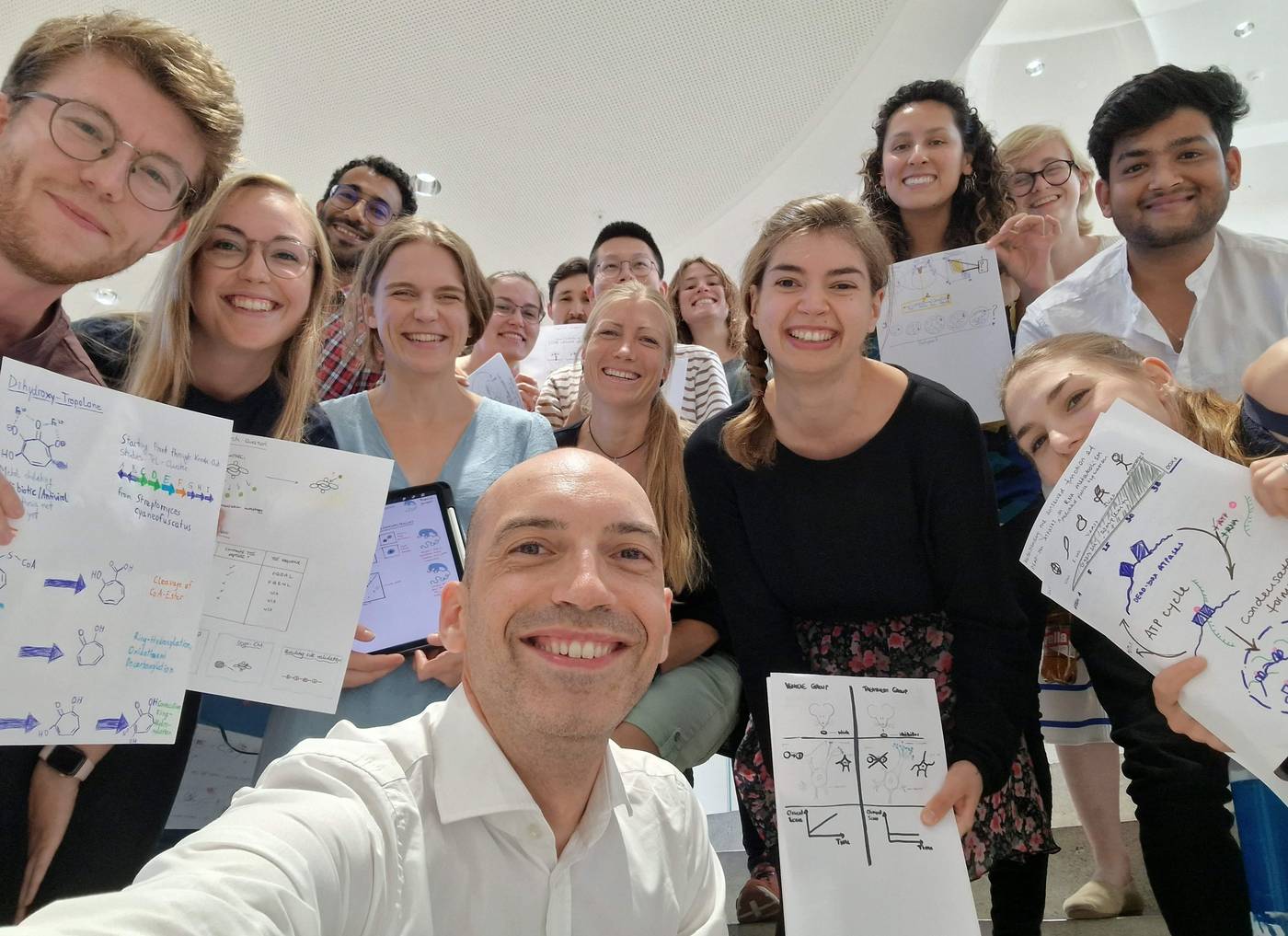
Trusted by Researchers at 200+ Renowned Institutions
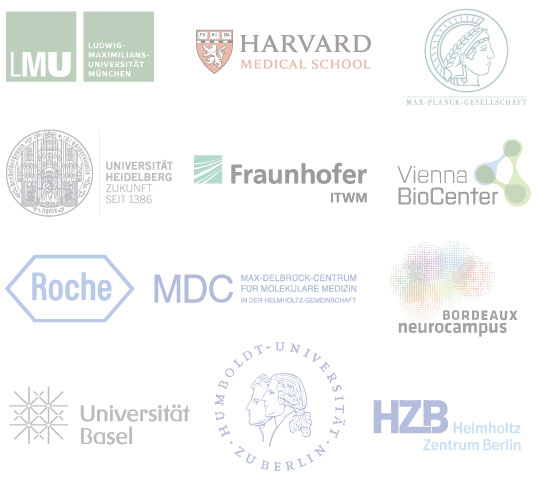
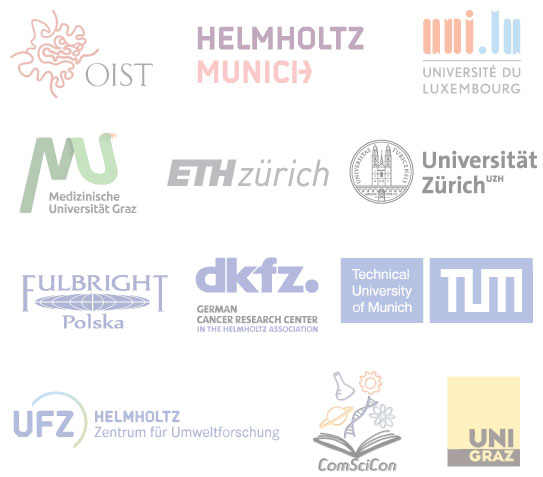
Hybrid Training Format
- Personalized Hands-On Workshop: Submit your materials in advance and receive tailored feedback. During the workshop, you’ll engage in discussions with peers, learn to give and receive informed feedback, and create a graphical abstract of your research for immediate application.
- Online / In-person Workshop: Either online (Zoom) or in person at your institution. After almost 400 events, I can use either format for an equally enjoyable, immersive, and fun experience. Check participants’ reviews.
- Online Courses: The self-study module has been crafted to be precise and succinct. No-nonsense. It is accessible to everyone for 12 months so you can replay any part when you need it.
- The Seyens Method Certificate: After completing the courses and attending the live event, you will receive a personalized PDF certificate. Many universities recognize the training for ECTS credit points.
Excellence Guaranteed
- Target Group: From PhD students, PostDocs, to group leaders. Essential for STEM research topics, useful for all who want to visually amplify their messages. No inherent talent is necessary.
- Easy Booking Process: Streamlined and simple event booking, promotion, and organization. I take care of everything else.
- Risk-Free: Through a discovery call, I evaluate the training’s alignment with your researchers’ needs. I also have a ‘100% money-back’ guarantee for any justified dissatisfaction with the training.
- Confidentiality Assured: Participant materials are exclusively shared within the peer group from your institution. I work with renowned universities and Fortune 500 corporations and have systems to ensure no intellectual property leaks.
- Custom Events: Feel free to send a request for tailored events.
Workshop Experience
Content
Fundamental Visual Communication ▸ Scientific Figures |
|
| 👉🏻 | Plan and structure your message for any scientific and non-scientific audience with a proven framework |
| 👉🏻 | Design process that simplifies your creative work and saves you time |
| 👉🏻 | Psychology and visual perception behind what humans find intuitive |
| 👉🏻 | Design philosophy that helps you make strategic design decisions |
| 👉🏻 | Layout: simplifying comprehension through a structured layout |
| 👉🏻 | Eye-flow: effortlessly guide the audience through the design |
| 👉🏻 | Colors: how to amplify, not ‘fancify’ |
| 👉🏻 | Typography: how to choose and combine fonts for legibility, structure, and aesthetics |
Exercises & Group work |
|
| ✨ | Participants’ challenges: addressing the unique struggles students encounter in their science communication efforts. |
| ✨ | Feedback on images: personalized feedback on a selection of figures from participants and discussion. |
| ✨ | Feedback on slides: personalized feedback on a selection of slides from participants and discussion. |
| ✍🏻 | Graphical abstract drawing exercise: draw a sketch of your own research. |
| 🤝🏻 | Graphical abstract group work: learn to give and receive actionable and informed feedback |
Effective Slide Presentations |
|
| 👉🏻 | Anatomy of an effective presentation: what really matters and how slides can help |
| 👉🏻 | Slide strategy & principles: a simple but effective way of using slides |
| 👉🏻 | Slide real-estate: the connection between information hierarchy and use of space on slides |
| 👉🏻 | Crafting templates for perfect essential slides: title slides, use of text, use of visuals, conclusions, acknowledgements |
| 👉🏻 | Transitions & animations: tactics for using in scientific context |
Effective Scientific Posters |
|
| 👉🏻 | The goal of a poster: how to plan effectively for a conference |
| 👉🏻 | The two big mistakes: that almost every poster makes |
| 👉🏻 | Audience flow: understanding the psychology of your session attendees |
| 👉🏻 | Your poster strategy: giving your audience exactly what they want |
| 👉🏻 | Traditional vs modern posters: how to effectively consolidate both |
| 👉🏻 | Your institutional template: using it correctly without losing creativity |
Effective Grant Proposals |
|
| 👉🏻 | My grant consulting journey and key takeaways |
| 👉🏻 | Grant evaluation dynamics and how to stack the odds in your favor |
| 👉🏻 | Scoring psychology: techniques to align with the evaluator’s mindset |
| 👉🏻 | Mastering the first two pages: use of graphical abstracts and impactful introductions |
| 👉🏻 | Document formatting: structuring and enhancing your proposal’s visual appeal |
| 👉🏻 | Essential figures: guidelines on critical visual elements for grants |
| 👉🏻 | Building trust and credibility: strategies for strengthening your CV and additional tactics |
Lessons, examples & redesigns, drawing exercise, personalized feedback, group work, discussions
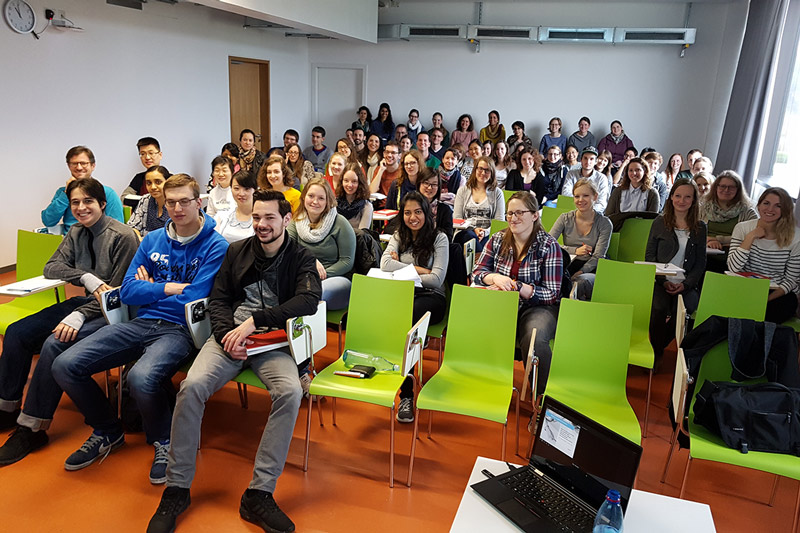
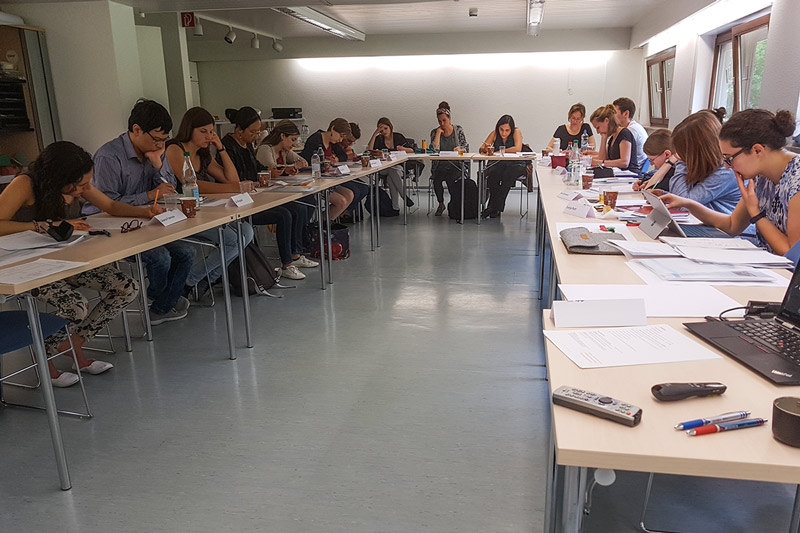
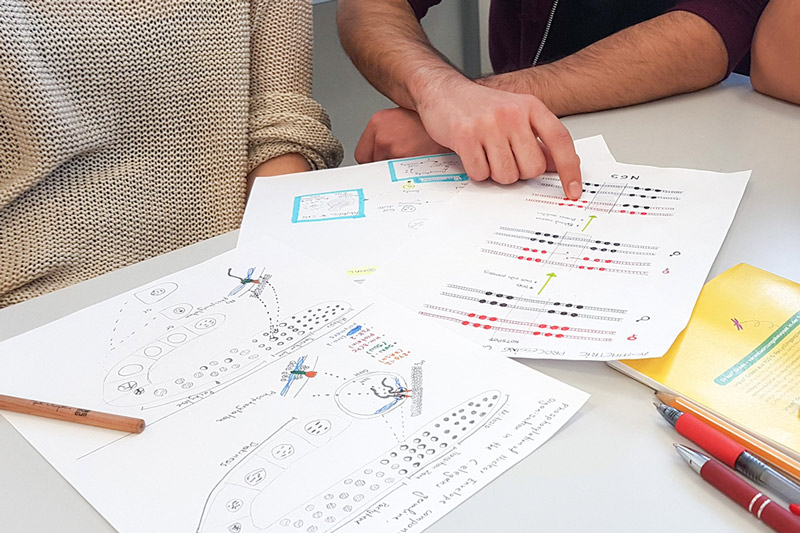
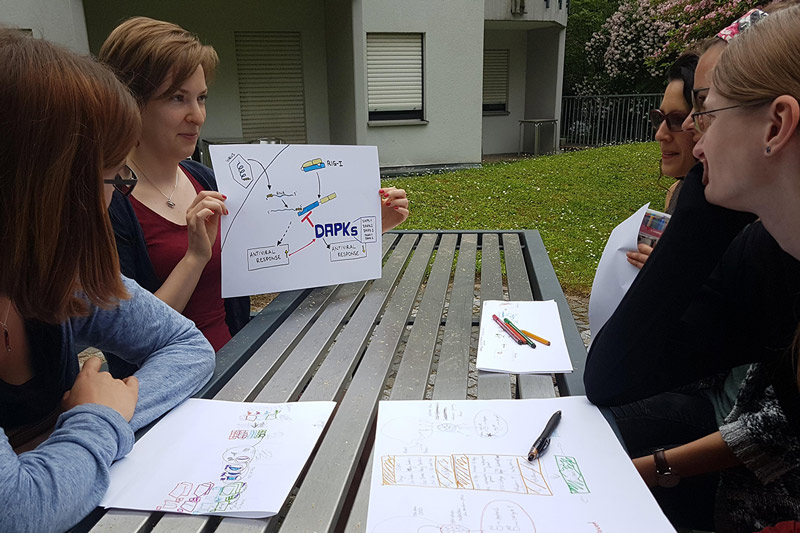
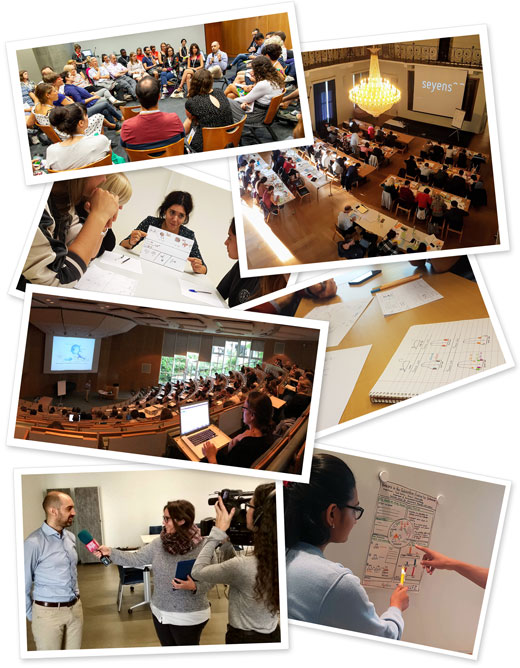
Request a No-obligation Offer!
Events are typically scheduled with a lead time of 6 to 12 months. I recommend reaching out well in advance to ensure flexibility in selecting your preferred dates.


